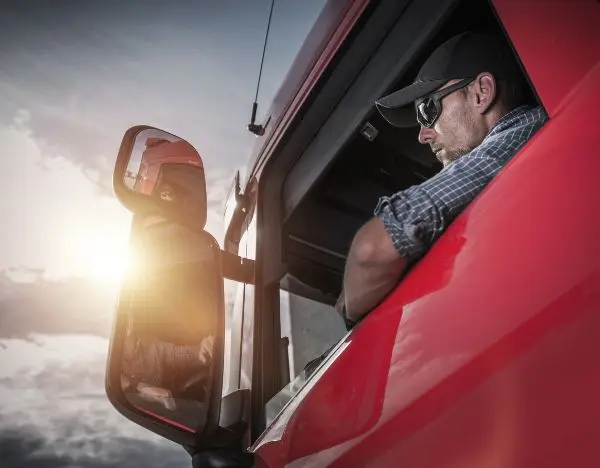Can CDL Drivers Use Medical Marijuana?

Can CDL Drivers Use Medical Marijuana?
As the landscape of marijuana legalization continues to evolve across the United States, many commercial driver's license (CDL) holders find themselves wondering: can CDL drivers use medical marijuana? This question has become increasingly relevant as more states legalize cannabis for medical and recreational use. At Trbovich Law Firm, we understand the complexities surrounding this issue and aim to provide clear information for CDL drivers navigating these waters.
The Federal Stance on CDL Drivers and Marijuana

To address the question "can CDL drivers use medical marijuana," we must first look at federal regulations. The Department of Transportation (DOT) and the Federal Motor Carrier Safety Administration (FMCSA) have strict rules regarding drug use for commercial drivers. These federal regulations supersede state laws, even in states where medical marijuana is legal.
Under federal law, marijuana remains a Schedule I controlled substance. This classification means that its use, possession, and distribution are illegal under federal law, regardless of state legislation. For CDL drivers, this federal stance has significant implications.
The DOT's drug and alcohol testing regulations do not recognize medical marijuana as a valid explanation for a positive drug test. This means that even if a CDL driver has a valid medical marijuana prescription from their state, it will not exempt them from the consequences of a positive drug test.
State Laws vs. Federal Regulations for CDL Medical Marijuana Use in New York
New York state has made significant strides in marijuana legalization, including the legalization of medical marijuana in 2014 and recreational marijuana in 2021. This progressive stance has led many to ask: can CDL drivers use medical marijuana in New York? Unfortunately, the answer remains no, despite the state's more lenient laws.
New York's Medical Marijuana Program
New York's Compassionate Care Act established the state's medical marijuana program, allowing patients with qualifying conditions to use cannabis for therapeutic purposes. The program has expanded over the years, increasing accessibility and the approved product range.
However, CDL drivers must understand that participation in New York's medical marijuana program does not provide protection when it comes to their commercial driving responsibilities.
The Federal-State Conflict for CDL Drivers
While New York has legalized medical and recreational marijuana, CDL drivers must adhere to federal regulations due to the nature of their profession. This creates a significant conflict between state and federal laws that directly impacts commercial drivers.
Key points to remember:
- Federal Supremacy: Federal regulations, which prohibit any marijuana use by CDL holders, supersede New York state law for commercial drivers.
- DOT Policy: The U.S. Department of Transportation has explicitly stated that state initiatives, including medical marijuana laws, do not alter DOT-regulated drug testing programs.
- Zero Tolerance: The Federal Motor Carrier Safety Administration (FMCSA) maintains a zero-tolerance policy for marijuana use among CDL holders, regardless of state laws.
- Medical Certification: In New York, as in all states, CDL holders must maintain a valid medical certificate. Using marijuana, even with a state-issued medical card, can result in disqualification.
- Employment Policies: Many New York-based trucking companies and employers follow federal guidelines, meaning they can still prohibit marijuana use and conduct drug tests, even if you have a state medical marijuana card.
Consequences of Marijuana Use for CDL Drivers
The repercussions for CDL drivers who use marijuana, even for medical purposes, can be severe. These may include:
- Disqualification from operating a commercial motor vehicle
- Suspension or revocation of CDL
- Mandatory substance abuse evaluation and treatment
- Fines and potential criminal charges
- Loss of employment and difficulty finding future work in the trucking industry
Given these potential consequences, it's clear why the question "can CDL drivers use medical marijuana" is so important for those in the commercial driving profession.
Medical Marijuana and CDL DWAI Concerns
Another crucial aspect to consider is the potential for a DWAI (Driving While Ability Impaired) charge. Even if a CDL driver uses medical marijuana while off-duty, the lingering effects of THC in their system could lead to impairment while operating a commercial vehicle.
If you're facing a CDL DWAI situation related to medical marijuana use, it's crucial to seek legal representation. A CDL DWAI lawyer can help navigate the complex legal landscape and work to protect your rights and livelihood.
Staying Informed and Protected
For CDL drivers, staying informed about current regulations is crucial. Here are some steps to protect yourself:
- Regularly review DOT and FMCSA guidelines regarding drug use.
- Be aware of the medications you're taking and their potential impact on drug tests.
- If you're considering medical marijuana for a health condition, discuss alternative treatments with your healthcare provider.
- If you face a drug test issue or CDL DWAI charge, seek legal counsel immediately.
How a DWAI Lawyer Can Help if Charged with Being Under the Influence
At Trbovich Law Firm, we understand the severe consequences CDL drivers face when charged with Driving While Ability Impaired (DWAI). If you're a CDL holder facing such charges, whether related to medical marijuana use or other substances, it's crucial to seek experienced legal representation immediately. Here's how our CDL DWAI lawyers can assist you:
- Case Evaluation and Strategy Development: We'll thoroughly review the circumstances of your case, including the traffic stop, field sobriety tests, and any chemical test results. Based on this evaluation, we'll develop a robust defense strategy tailored to your specific situation.
- Challenging Evidence: Our DWAI defense attorneys are well-versed in the intricacies of DWAI cases involving CDL holders. We'll scrutinize all evidence, including the legality of the traffic stop, the accuracy of field sobriety tests, and the reliability of chemical test results. If we find any procedural errors or violations of your rights, we'll move to have evidence suppressed.
- Negotiating with Prosecutors: We can often negotiate with prosecutors to reduce charges or penalties. Our goal is to minimize the impact on your CDL and your career. We may be able to argue for alternative sentencing options or diversion programs that could help you maintain your commercial driving privileges.
- Representation in Administrative Hearings: DWAI charges often trigger administrative proceedings that can affect your CDL. We'll represent you in these hearings, fighting to protect your commercial driving privileges and livelihood.
- Guidance on CDL Reinstatement: If your CDL has been suspended or revoked, we'll help you through the reinstatement process. This may involve completing substance abuse programs, paying fines, or fulfilling other requirements set by the Department of Motor Vehicles.
- Defense Against Federal Violations: A DWAI charge can also lead to federal violations for CDL holders. We're experienced in handling cases involving state and federal regulations, ensuring a comprehensive defense of your rights and interests.
- Mitigation of Long-Term Consequences: A DWAI conviction can have long-lasting effects on your career. We'll work to mitigate these consequences, potentially by seeking record sealing or expungement options when available.
- Education on Future Compliance: We'll provide clear guidance on how to maintain compliance with DOT regulations moving forward, helping you avoid future issues that could jeopardize your CDL.
- Representation in Civil Matters: You may face civil litigation if your DWAI charge stems from an accident. Our firm can either represent you in these matters or refer you to trusted colleagues who specialize in civil litigation.
- Ongoing Support and Communication: Throughout the legal process, we'll keep you informed about the progress of your case, explain your options clearly, and be available to answer your questions and address your concerns.
At Trbovich Law Firm, we recognize that CDL holders facing DWAI charges are uniquely vulnerable. Your career, livelihood, and future are at stake. Our experienced CDL DWAI lawyers are committed to providing aggressive, strategic defense to protect your rights and your ability to continue working in the commercial driving industry.
Protect Your CDL and Your Career
If you're a CDL driver facing issues related to medical marijuana use or DWAI charges, don't wait to seek legal help. At Trbovich Law Firm, we understand the complexities of CDL regulations and the potential impact on your career. Contact us today for a confidential consultation. Let us put our experience to work for you, protecting your rights and your future in the commercial driving industry.
Can CDL Drivers Use Medical Marijuana? FAQs
To further clarify the complex issue of medical marijuana use for CDL drivers, we've compiled a list of frequently asked questions:
Can CDL drivers use medical marijuana if it's legal in their state?
No, CDL drivers cannot use medical marijuana, even if it's legal in their state. Federal regulations prohibit the use of marijuana for all commercial drivers, regardless of state laws.
Will a medical marijuana card protect a CDL driver from failing a DOT drug test?
No, a medical marijuana card does not provide any protection for CDL drivers. The Department of Transportation does not recognize medical marijuana as a valid explanation for a positive drug test.
Can a CDL driver use CBD products?
CDL drivers should exercise extreme caution with CBD products. While pure CBD is not prohibited, many CBD products contain trace amounts of THC, which could result in a positive drug test. It's safest for CDL drivers to avoid all cannabis-derived products.
What happens if a CDL driver tests positive for marijuana?
If a CDL driver tests positive for marijuana, they will be immediately disqualified from operating a commercial motor vehicle. They may face suspension or revocation of their CDL, mandatory substance abuse evaluation and treatment, and potential job loss.
Can a CDL driver use medical marijuana while off-duty?
No, CDL drivers are prohibited from using marijuana at any time, whether on or off duty. The presence of THC in a driver's system is a violation of federal regulations, regardless of when it was consumed.
What should a CDL driver do if they're facing a CDL DWAI charge related to medical marijuana use?
If a CDL driver is facing a DWAI charge related to medical marijuana use, they should immediately contact a CDL DWAI lawyer. An experienced DWAI defense attorney can help protect their rights, navigate the legal process, and work to minimize the impact on their commercial driving career.
Are there any exceptions for CDL drivers to use medical marijuana?
Currently, there are no exceptions that allow truck drivers to use medical marijuana. The federal prohibition applies to all commercial drivers, regardless of their medical conditions or state laws.
Can a CDL driver lose their license for using medical marijuana even if they weren't driving at the time?
Yes, a CDL truck driver can lose their license for using medical marijuana, even if they weren't driving when they used it or when they were tested. The presence of THC in their system is a violation of federal regulations.
What alternatives do CDL drivers have if they can't use medical marijuana?
Commercial truck drivers should consult with their healthcare providers about alternative treatments that don't violate DOT regulations. This may include FDA-approved medications, physical therapy, or other forms of treatment that don't involve prohibited substances.
Why is Medical Marijuana Bad for Truck Drivers?
While medical marijuana may offer benefits for certain health conditions, it poses significant risks for truck drivers. Here's a concise list of reasons why medical marijuana is problematic for those holding a CDL:
- Impaired Cognitive Functions: Marijuana can negatively affect reaction time, judgment, coordination, and concentration - all critical for safe driving.
- Safety-Sensitive Position: Truck drivers operate large vehicles on public roads, requiring a higher standard of sobriety to ensure public safety.
- Lingering Presence: THC can remain detectable in the body for weeks, potentially causing positive drug tests long after use.
- Federal Prohibitions: DOT regulations strictly forbid marijuana use for CDL holders, regardless of state laws or medical status.
- Employment Risks: Using medical marijuana can lead to job loss and difficulty finding future employment in the trucking industry.
- Legal Consequences: CDL drivers using medical marijuana risk license suspension, fines, and potential CDL DWAI charges.
- Unpredictable Effects: Marijuana's impact can vary between individuals and occasions, making it impossible to ensure fitness for duty.
- Insurance Issues: Marijuana use can complicate insurance coverage, potentially leaving drivers unprotected in case of accidents.
- Professional Stigma: Despite changing social attitudes, marijuana use still carries a stigma in the trucking industry.
Remember, the rules regarding can CDL drivers use medical marijuana are strict and unambiguous. If you're a CDL driver facing issues related to medical marijuana use or a CDL DWAI charge, it's crucial to seek legal advice promptly. At Trbovich Law Firm, we're here to help you navigate these complex legal waters and protect your commercial driving career.

